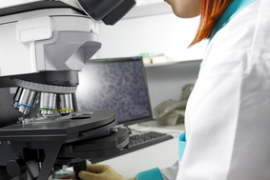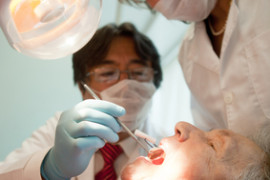Vitamin D may help inhibit inflammation caused by periodontal disease, according to a study in the Archives of Oral Biology.
Researchers found that Vitamin D deficiency increases oral pathogens, particularly P. gingivalis. What is more, Vitamin D deficiency also increases the inflammatory response to the pathogen by increasing expression of inflammatory cytokines Interleukin-6 and Interleukin-8.
The study authors concluded that Vitamin D might play a significant role in reducing the inflammatory effects of P. gingivalis by decreasing the body’s inflammatory response to the pathogen, both locally and systemically.
P. gingivalis has been well established as a virulent pathogen, both intraorally and throughout the body. More than the cause of destructive periodontal disease, this virulent and alarmingly common pathogen has been implicated in cardiovascular disease, diabetes, Alzheimer’s disease, rheumatoid arthritis, and oral cancer. This study shows that a Vitamin D deficiency just amplifies the effect.
And most healthcare authorities agree that adults across the globe aren’t getting enough Vitamin D. Vitamin D deficiency is exceedingly common, affecting nearly half the world’s adult population. Women appear to be particularly affected; a recent study found that 78% of non-pregnant women of childbearing age in the United States are Vitamin D deficient.
Vitamin D is an important nutrient when it comes to disease prevention. Not only does it help the body absorb calcium and other nutrients in the gut, it’s also shown to help the body ward off many of the same diseases that are associated with periodontal disease.
With Vitamin D deficiency affecting such a significant portion of the population, many of whom probably have periodontal disease (remember, more than 75% of American adults have some form of it), it has never been more important to incorporate nutrition as a component of oral care in a wellness-based approach to overall health.



